When we think about scams, we often picture everyday individuals being targeted. But fraudsters don’t discriminate—even famous faces can fall victim to their devious schemes. These celebrity scam stories prove that anyone, regardless of fame or fortune, can be at risk. So, let’s dive into some high-profile cases of famous scam victims, that remind us why vigilance is key in protecting ourselves from fraud.
Famous scam victims & their stories
1. Peter Levy: Duped by a fake bank representative
BBC Look North presenter Peter Levy lost half his life savings in a sophisticated banking scam. In this case, the fraudster posed as a representative from his bank’s fraud department, calling Levy about “suspicious activity” on his account. Despite his experience interviewing scam victims on his show, duped, Levy shared his account details, leading to substantial financial loss and mental anguish. He said: “It is so traumatising and upsetting. You cannot sleep…cannot do anything. You feel helpless and I fell for something.”
Lesson learned: Always verify the identity of callers claiming to be from your bank. Moreover, legitimate banks will never ask for your full PIN or password over the phone.
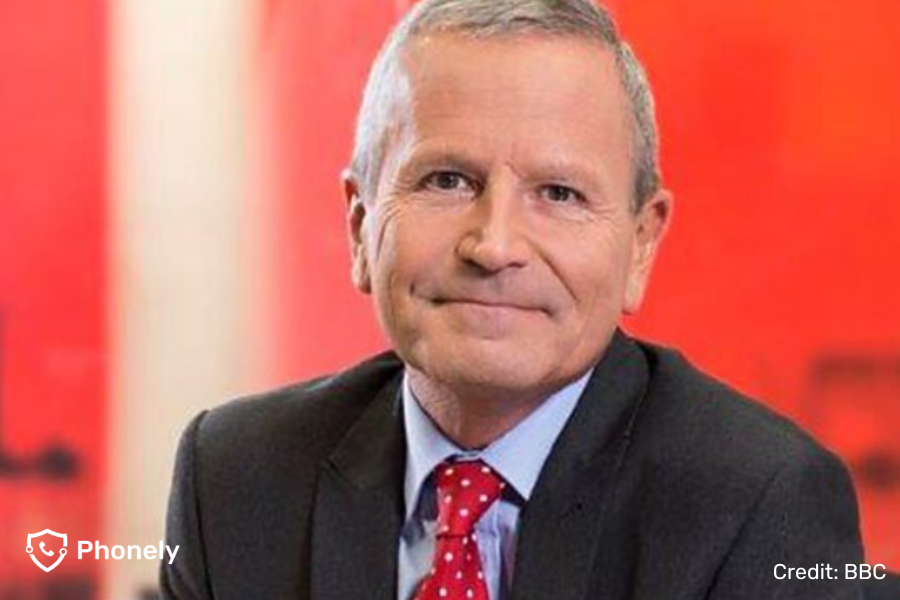
2. Gloria Hunniford: Victim of identity theft
TV presenter Gloria Hunniford fell victim to a £120,000 identity theft scam. Specifically, a fraudster, impersonating her, managed to siphon money from her savings account. As a result, Hunniford felt violated and spoke publicly about her experience to raise awareness. Ultimately, this story serves as a stark reminder that even public figures are susceptible to identity theft—a crime that can happen to anyone.
Prevention tip: Regularly monitor your bank statements and credit reports for any suspicious activity.
3. Denise Welch: Targeted by phone scammers
A cunning phone scammer conned Loose Women star Denise Welch out of £2,000. The caller, posing as a Barclays fraud representative, gained her trust over several calls before requesting her four-digit PIN. Welch admitted she felt “ashamed” and “violated” so shared her experience to warn others about the dangers of fraudsters who use emotional manipulation to target their victims.
Red flag: Your bank will never ask for your full PIN over the phone. If in doubt, hang up and call your bank using the number on the back of your card.

4. Sophia Loren: Entangled in a tax scam
The iconic actress Sophia Loren became entangled in a major tax scam in the 1970s. Specifically, her accountant filed incorrect tax returns on her behalf, leading to years of legal battles and significant financial loss. Loren’s ordeal serves as a stark reminder of the need to closely monitor financial dealings, even when managed by professionals.
Tax tip: Always review your tax returns carefully, even if prepared by a professional. Consider getting a second opinion for complex tax situations.
5. Andy Cohen: Scammed by a fraudulent credit card scheme
Talk show host Andy Cohen, known for Watch What Happens Live, was caught in a credit card fraud that led to unexpected charges. A fraudster managed to gain access to Cohen’s credit card details, resulting in the TV star losing thousands of dollars. Reflecting on the experience, Cohen admitted how easy it is to get tricked, highlighting that anyone—regardless of fame—can fall victim to such schemes.
Financial security tip: Regularly monitor your credit card statements and report suspicious activity immediately.
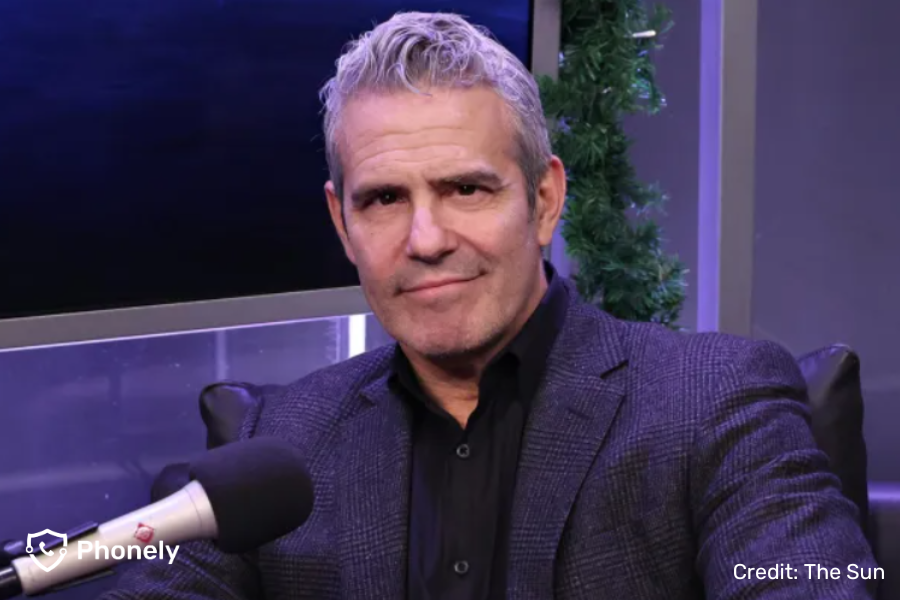
6. Barbara Corcoran: Almost lost $400,000 in an email phishing scam
Shark Tank star Barbara Corcoran nearly lost $400,000 in a phishing scam when her bookkeeper mistakenly sent the money to a fraudster posing as Corcoran’s assistant. Fortunately, her bank froze the transaction before it went through. Corcoran’s public recount of the incident highlights the importance of verifying payment requests, especially when large sums of money are involved.
Pro tip: Always double-check email addresses and payment requests, particularly with large transactions.
7. Noel Edmonds: Lost £300,000 in HBOS scam
TV presenter Noel Edmonds was one of the victims of the HBOS Reading fraud scandal, where corrupt bankers exploited small business owners. Edmonds lost £300,000 due to the scam, which involved issuing fraudulent loans and mismanaging funds. This financial setback had significant personal and professional impacts on Edmonds, who has since been an advocate for victims of financial fraud.
Advice: Be cautious when dealing with financial institutions, and always ask for a second opinion when borrowing or investing money.

8. Helen Skelton: Scammed out of £70,000 in a phone fraud
TV presenter Helen Skelton lost £70,000 after falling victim to a phone scam. Fraudsters tricked her into revealing personal and financial information by pretending to be from her bank, which led to the draining of her savings. Skelton later shared her story to raise awareness about the rising threats of phone scams.
Red flag: Your bank will never ask for sensitive information over the phone. Always contact them through official numbers if suspicious.
9. Matthew Wright: Lost £10,000 in a pension scam
TV host Matthew Wright was swindled out of £10,000 after falling victim to a pension scam. The fraudsters convinced him to invest his retirement savings into a fake scheme, resulting in significant financial loss. This story highlights how pension scams often target individuals planning for retirement, luring them with false promises of high returns.
Pension safety tip: Always verify the legitimacy of pension schemes and seek advice from regulated financial advisors before investing.
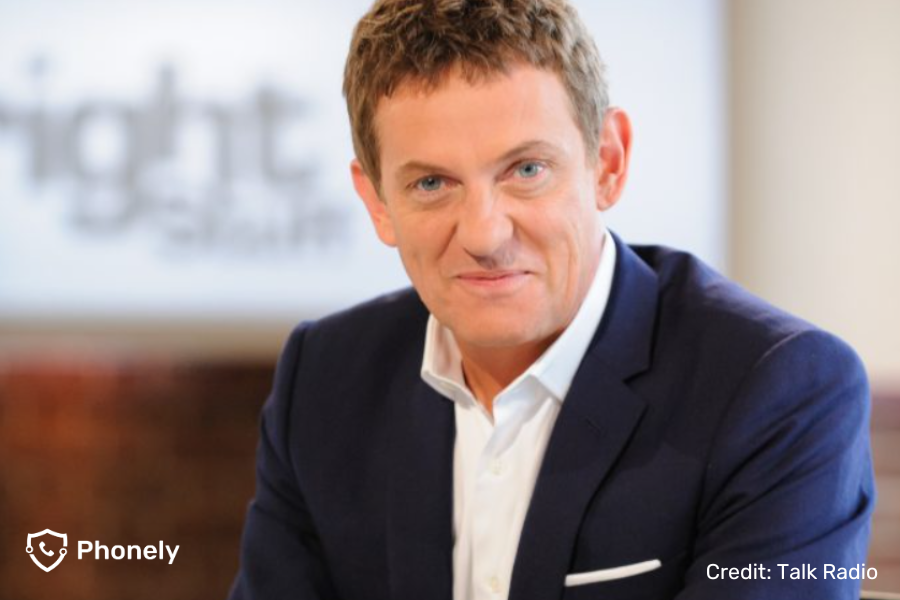
10. Kiefer Sutherland: Duped in a $869,000 cattle investment fraud
Actor Kiefer Sutherland, star of 24, lost $869,000 after being tricked into a cattle investment scam. The fraudster, Michael Wayne Carr, convinced Sutherland to invest in a cattle business that turned out to be fake. The substantial financial loss emphasized the need for due diligence before making any high-risk investments, even for high-net-worth individuals.
Investment tip: Perform thorough background checks and consult experts before investing in unfamiliar ventures.
11. John McEnroe: Victim of a $129 million art fraud
Tennis legend John McEnroe was caught up in a massive $129 million art scam orchestrated by Lawrence Salander, who defrauded investors out of millions. McEnroe lost nearly $2.9 million after investing in fraudulent shares of artworks. The scam revealed the vulnerabilities of even experienced investors in the high-end art world.
Art investment tip: Always work with reputable art dealers and request authentication of any artwork before investing large sums.
12. Manti Te’o: Catfished in a fake relationship
American football star Manti Te’o was the victim of a notorious catfishing scam that made headlines worldwide. Te’o was tricked into an online relationship with a woman who didn’t exist, leading him to believe she had passed away. The scandal affected both his personal life and his career, with the emotional and reputational toll proving substantial.
Online safety tip: Always verify the identity of people you meet online and be cautious about sharing personal details.

The psychological impact of scams on celebrities & everyday victims
Being scammed can have a profound psychological impact on victims, including famous faces. Indeed, the shock, betrayal, and financial loss can lead to long-lasting emotional scars.
Can you get PTSD from being scammed?
Yes, being scammed can lead to PTSD in some victims. The experience can leave people feeling:
- Vulnerable
- Mistrustful
- Anxious
- Depressed
- Angry
- Ashamed
These feelings can persist long after the incident has passed. Recovery often requires therapy and time to rebuild confidence and trust.
How to recover mentally after a scam
Recovering from the emotional toll of a scam takes time and support. Therefore, here are some steps to help:
- Seek advice from Friends Against Scams and support from friends and family
- Consider talking to a mental health professional
- Join support groups for scam victims
- Practice self-compassion and avoid self-blame
- Take proactive steps to protect yourself from future scams
Remember, anyone can be scammed, even the rich and famous. Furthermore, it’s crucial to forgive yourself, place the blame firmly with the criminals and focus on moving forward.
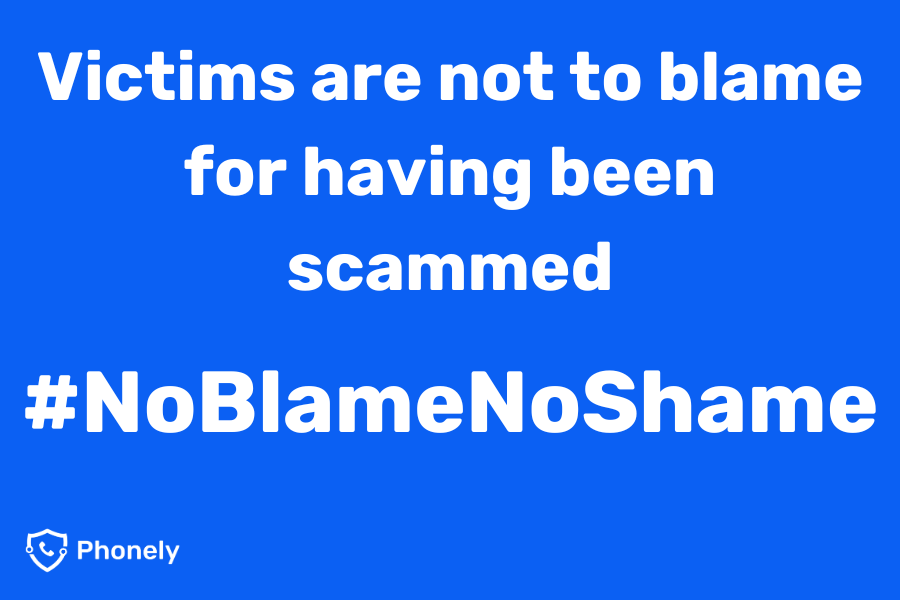
Practical steps for scam recovery
While the emotional impact of scams is significant, there are also practical steps victims can take to recover financially and protect themselves in the future.
How to recover scammed money
If you’ve fallen victim to a scam, it’s essential to act quickly:
- Contact your bank or credit card company immediately to report the fraud
- File a report with Action Fraud
- Keep all records and correspondence related to the scam
- Consider seeking legal advice if scammers have taken large sums from you
- Check if you’re eligible for reimbursement under the Contingent Reimbursement Model Code
In 2023, fraud cases accounted for losses exceeding £1.2 billion in the UK, with scams increasing by 30% over the last year. While you can’t always guarantee recovery of stolen money, swift action can increase your chances of getting it back.
How to protect yourself from scams
Learning from these famous scam victims, it’s clear that anyone can fall victim to fraud. Here are some essential tips to help protect yourself:
- Be sceptical of unsolicited calls, emails, or messages
- Never share personal information or passwords over the phone or email
- Use strong, unique passwords for all your accounts
- Enable two-factor authentication wherever possible
- Regularly monitor your bank and credit card statements
- Stay informed about the latest scam techniques
- Take your time—don’t let anyone pressure you into making quick decisions
- If something seems too good to be true, it probably is

Phonely’s CallGuard: Your first line of defence against phone scams
At Phonely, we understand the importance of protecting our customers from scams. We don’t want any more famous scam victims or anyone to be a scam victim, for that matter. In fact, it’s the general public who have more to lose. So that’s why we’ve developed CallGuard, a powerful tool designed to block scammers at every turn. With CallGuard, you can:
- Our community reports scam numbers through who called me and we automatically block them within an hour
- Play an anti-fraud introduction to deter fraudsters from connecting their call to you
- Receive alerts to criminal keywords used within your calls
- Have live human backup on your call should you need it
- Find the confidence to answer your phone without fear
By combining vigilance with tools like CallGuard, you can significantly reduce your risk of falling victim to phone scams.
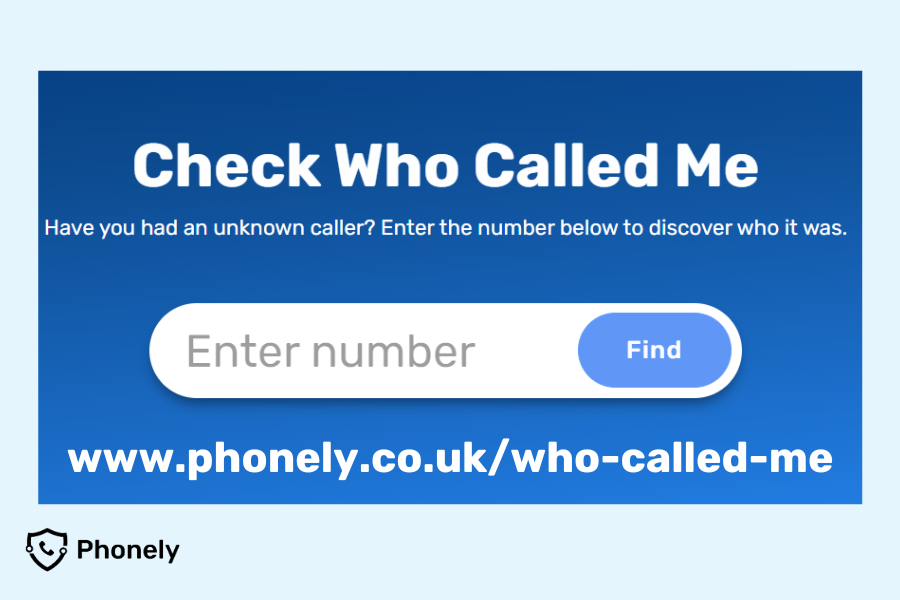
Reporting a scam: Why it matters
If you believe you’ve been scammed, it’s crucial to report the incident. In the UK, you can contact:
- Action Fraud (the national fraud and cybercrime reporting centre)
- Your local police station
- Your bank or financial institution
Reporting scams helps authorities:
- Track fraudsters
- Prevent them from targeting more victims
- Gather data on scam trends
- Develop better prevention strategies
Your report could be the key to stopping a scammer and protecting others from falling victim.
Frequently Asked Questions About Celebrity Scams
Can celebrities really be scammed?
Yes, as you can see from the famous scam victims above, celebrities are just as vulnerable to scams as anyone else. Despite their wealth and influence, many fall victim to sophisticated fraud schemes such as identity theft, phishing, and financial scams.
What types of scams target celebrities?
Celebrities are often targeted by a variety of scams, including:
- Phishing scams: Fraudsters send fake emails or messages to trick celebrities into revealing personal information.
- Identity theft: Scammers impersonate celebrities to siphon funds from their accounts or exploit their identities for other fraudulent activities.
- Investment fraud: Celebrities are sometimes tricked into fraudulent real estate deals or fake investment schemes, as in the case of Nicolas Cage.
Why do scammers target celebrities?
Scammers target celebrities because of their wealth, influence, and large public profiles. Celebrities are seen as high-reward targets.
How can I tell if a celebrity is being impersonated in a scam?
Instead of famous scam victims, celebrity profiles can be used to create scams to victimise the general public. Some signs that a celebrity is being impersonated include:
- Requests for money or personal information, often in the name of a charity or contest
- Messages from unofficial or new accounts not verified on social media platforms
- Offers that seem “too good to be true,” such as investment opportunities or exclusive fan experiences
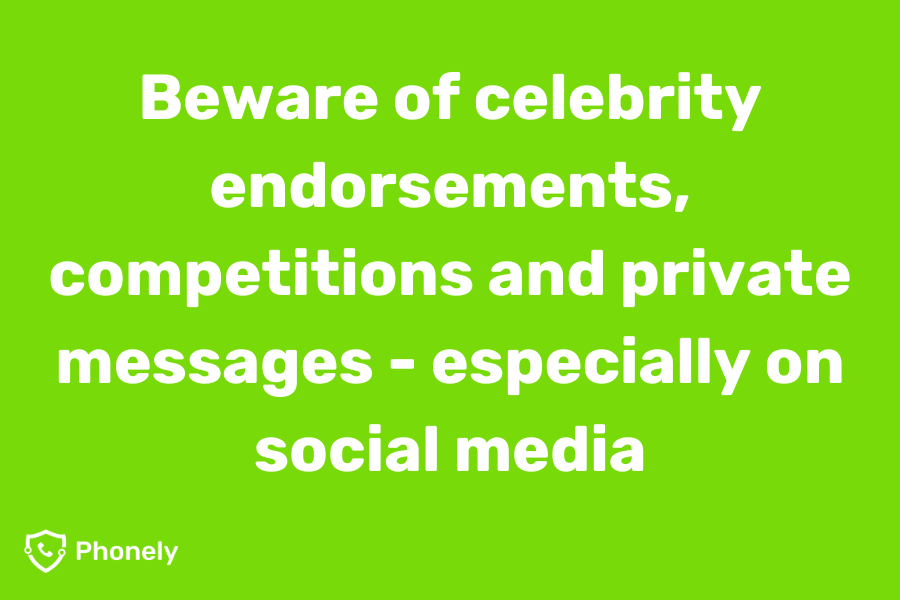
How much money have people lost to scams in the UK?
In the UK, fraud cases resulted in losses exceeding £1.2 billion in 2023 alone. With scams on the rise, it’s crucial for both celebrities and everyday individuals to remain vigilant and take steps to protect their financial information.
Can scams cause psychological harm?
Yes, being scammed can lead to significant emotional distress, including symptoms of anxiety, depression, and even post-traumatic stress disorder (PTSD). The psychological impact can be especially strong when victims feel betrayed or vulnerable after losing money or personal information.
How can I protect myself from falling for scams?
To protect yourself from scams:
- Be cautious with unsolicited communications, especially those requesting personal or financial information
- Always verify the legitimacy of the source before sharing sensitive information
- Use strong, unique passwords for your online accounts and enable two-factor authentication whenever possible
- Regularly monitor your financial statements for any suspicious activity
What should I do if I’ve been scammed?
If you’ve been scammed:
- Contact your bank immediately to report the fraud and prevent further losses
- Report the scam to Action Fraud
- Keep all records of the scam, including communications and financial transactions
- Seek legal advice if the scam involves a significant financial loss
- Find support from your loved ones or professionals

Conclusion: Staying vigilant in a world of scams
The stories of these famous scam victims show that no one is immune to the sophisticated tactics of modern fraudsters. From phone scams to identity theft, the methods are diverse and ever-evolving, especially with improvements in technology. However, by staying informed, using protective tools like Phonely’s CallGuard, and maintaining a healthy scepticism, you can significantly reduce your risk of becoming the next victim.
Remember, scammers rely on catching people off guard. So, by sharing these stories and tips with friends and family, we can create a more aware and resilient community against fraud. Above all, stay vigilant, trust your instincts, and don’t be afraid to seek help if you suspect you’ve been scammed.
Together, we can make it harder for scammers to succeed, celebrity or not. Don’t let your guard down—stay informed, stay protected, and stay one step ahead of the fraudsters.

Leave a Reply